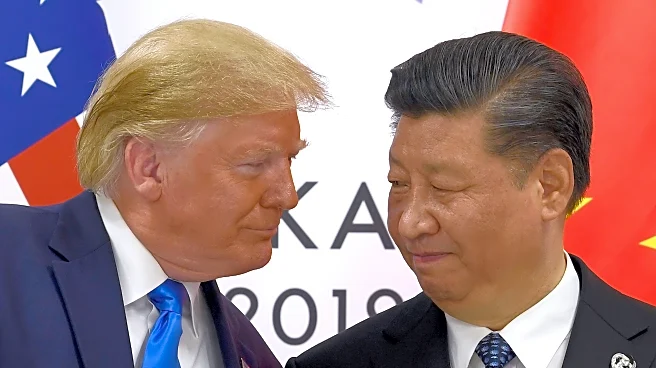What's Happening?
U.S. soybean exports to China have halted following Beijing's imposition of a 44-percent tariff on the legume, retaliating against President Trump's import duties on Chinese goods. This effective ban has
significantly impacted American farmers, who previously held a dominant position in the Chinese market. President Trump plans to address the issue in upcoming talks with Chinese President Xi Jinping, aiming to restore soybean purchases to pre-trade war levels. However, a report by Oxford Economics suggests that the U.S. may never regain its former market share, as China diversifies its sources by increasing imports from Brazil and Argentina.
Why It's Important?
Soybeans are a crucial component of U.S. agricultural exports, representing a significant portion of the sector's revenue. The loss of the Chinese market poses a severe threat to American farmers, who rely heavily on these exports for their livelihood. The trade war has exposed vulnerabilities in the U.S. agricultural sector, highlighting the risks of dependency on a single foreign market. The situation underscores the broader economic tensions between the U.S. and China, with potential repercussions for global trade dynamics and agricultural policies.
What's Next?
President Trump's upcoming meeting with Xi Jinping may offer an opportunity to negotiate a resolution to the soybean export crisis. The U.S. administration might explore alternative markets or seek concessions from China to alleviate the impact on American farmers. The ongoing trade war could lead to further retaliatory measures, affecting other sectors and complicating diplomatic relations. Stakeholders, including agricultural associations and policymakers, may advocate for strategies to diversify export markets and reduce reliance on China.













